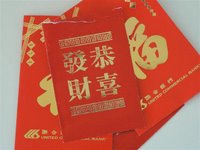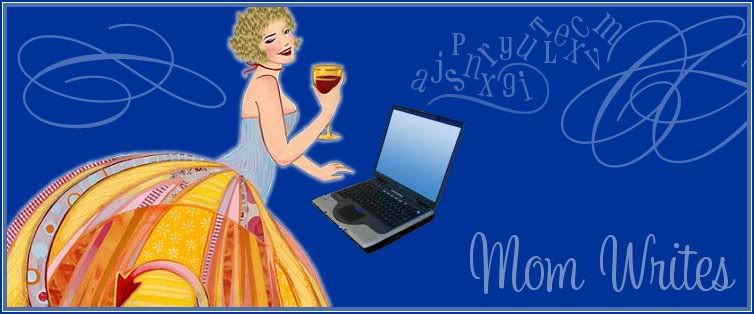Chinese New Year and some thoughts on raising Eurasian children
Update: If you have elementary age children, you'll enjoy Beth Kanter's lesson plan on Chinese New Year. Oh and by the way, it's the Year of the Dog!
 Today is Chinese New Year. If you spoke Mandarin, you would say,"Xin Nian Kuai Le!" which means "Happy New Year!"
Today is Chinese New Year. If you spoke Mandarin, you would say,"Xin Nian Kuai Le!" which means "Happy New Year!"
The Chinese measure time using a twelve month lunar calendar. Chinese New Year is the celebration of the lunar new year and is typically celebrated starting the first day of the first month of the Chinese calendar. Wikipedia has a good description of this event.
My sister-in-law Jennie is visiting Shanghai right now and yesterday she wrote a great entry about celebrating the new year in China:
Read about the rest of her experience on her blog Mental Hijinks.
Here in the San Francisco Bay Area where there is a large Chinese and Chinese American population, there are many events to celebrate Chinese New Year although they pale in comparison to the celebrations in China.
Because the new year is the opportunity to get together with family members, my father-in-law came over yesterday to spend some time with us. He brought with him Chinese food from two different restaurants. He made a special trip to a restaurant in the East Bay that makes good Chow Fun, which the kids really love.
He also brought with him little red envelopes (Lai-See envelopes). It is tradition on Chinese New Year that lucky money is given to the children and the young adults. If you are Chinese or are a part of a Chinese family, you receive little red envelopes on most special occassions, for example, the birth of a child or a wedding. For Chinese New Year, my kids also got Lai-See envelopes from our Realtor, who is Chinese.
***
My husband is one half Chinese. My children are one quarter Chinese and can be referred to as Eurasian--a mix of European and Asian ancestries. I find that I use this phrase most often with other moms who are either Asian (Chinese, Korean, Phillipino) or married to an Asian man. We tend to discuss the qualities of looking Eurasian: dark hair, eyes with an epicanthal fold, ornamental (Oriental) noses. My children don't look very Eurasian. Their blond hair and Thomas's blue eyes confuse people who recognize their last name is Chinese.
I don't spend much time explaining my children's name or ethnic makeup to strangers. Around here, there are many families of mixed Asian and European races. I was struck by this fact last year when I was looking at some pictures from a group outing we went on with my Mothers Club. Of the seven families photographed, four were of mixed race.
It makes me feel good to know that when my children go to school, they won't be ridiculed for their name even if they can "pass" for being Caucasian because of their diluted Asian features. If you don't believe that this type of prejudice exists, read this interview in the Mercury News with Phladelphia Phantoms goalie Jamie Storr, who is half Japanese. Storr says,
Around here, the fact that my children's father looks Chinese doesn't raise many eyebrows. And as the wife of a Chinese American man who bears his last name, I rarely have to explain my situation to new acquaintances. Once in awhile--usually after somebody has known me for awhile and feels comfortable discussing it with me--I might hear the comment, "You really surprised me when I first met you. From your name, I thought you were Chinese!" But the comment is made without malice or prejudice; my friend is merely stating a fact. I have a Chinese name yet I am not Chinese.
My challenge as the mother to Eurasian children is that I want to make sure we keep their heritage alive, but I'm not always sure how to do that. I believe communication, education, positive relationships with family members, and travel are key. We talk to our children about our family, we keep in touch through websites and pictures and letters, and I anticipate going with my kids to China when they're old enough to understand that it's the country where their grandfather was born and raised.
When I moved to the Bay Area in 1982 with my mom and stepdad, I didn't have a say in the decision. My stepdad got a new job and we moved; it was that simple. But now--as an adult--I have chosen to remain in this area even after my parents have left. Although I did not set out to fall in love with and marry a man of Chinese descent, I did. And I feel lucky to be living in an area where my kids might only know racial prejudice by reading about it or through a conscious effort to understand it.
Technorati tags: Chinese New Year, Eurasian, Eurasian children
 Today is Chinese New Year. If you spoke Mandarin, you would say,"Xin Nian Kuai Le!" which means "Happy New Year!"
Today is Chinese New Year. If you spoke Mandarin, you would say,"Xin Nian Kuai Le!" which means "Happy New Year!" The Chinese measure time using a twelve month lunar calendar. Chinese New Year is the celebration of the lunar new year and is typically celebrated starting the first day of the first month of the Chinese calendar. Wikipedia has a good description of this event.
My sister-in-law Jennie is visiting Shanghai right now and yesterday she wrote a great entry about celebrating the new year in China:
"Most every doorway in the city is festooned by red lanterns and two mandarin orange trees on either side, the trees decorated with red envelopes hanging on them like Christmas ornaments. Everyone is wishing each other happy new year (Xin Nian Kuai Le in Mandarin) and restaurants and shops all have bowls of oranges displayed prominently. Most businesses will be closed for the next five days. It's just like the Christmas holiday week--it's a time for families to come together, so many people have left the city to visit their hometowns, while (likely) just as many have returned to their family homes here. And given how dark and cold it's been here, I can also see the parallels in the timing of the holidays--red lanterns and fireworks shining brightly at the gloomiest time of the year."
Read about the rest of her experience on her blog Mental Hijinks.
Here in the San Francisco Bay Area where there is a large Chinese and Chinese American population, there are many events to celebrate Chinese New Year although they pale in comparison to the celebrations in China.
Because the new year is the opportunity to get together with family members, my father-in-law came over yesterday to spend some time with us. He brought with him Chinese food from two different restaurants. He made a special trip to a restaurant in the East Bay that makes good Chow Fun, which the kids really love.
He also brought with him little red envelopes (Lai-See envelopes). It is tradition on Chinese New Year that lucky money is given to the children and the young adults. If you are Chinese or are a part of a Chinese family, you receive little red envelopes on most special occassions, for example, the birth of a child or a wedding. For Chinese New Year, my kids also got Lai-See envelopes from our Realtor, who is Chinese.
My husband is one half Chinese. My children are one quarter Chinese and can be referred to as Eurasian--a mix of European and Asian ancestries. I find that I use this phrase most often with other moms who are either Asian (Chinese, Korean, Phillipino) or married to an Asian man. We tend to discuss the qualities of looking Eurasian: dark hair, eyes with an epicanthal fold, ornamental (Oriental) noses. My children don't look very Eurasian. Their blond hair and Thomas's blue eyes confuse people who recognize their last name is Chinese.
I don't spend much time explaining my children's name or ethnic makeup to strangers. Around here, there are many families of mixed Asian and European races. I was struck by this fact last year when I was looking at some pictures from a group outing we went on with my Mothers Club. Of the seven families photographed, four were of mixed race.
It makes me feel good to know that when my children go to school, they won't be ridiculed for their name even if they can "pass" for being Caucasian because of their diluted Asian features. If you don't believe that this type of prejudice exists, read this interview in the Mercury News with Phladelphia Phantoms goalie Jamie Storr, who is half Japanese. Storr says,
"It was difficult for me to fit into any particular group since there weren't any students who were half Japanese and half Canadian. When you're young, you always want to fit in with your peers. So that was difficult.
"Things would happen that would remind me that I was different. I heard a teacher once say that if it weren't for me and another girl, her classroom would be all white. Things like that would stand out."
Around here, the fact that my children's father looks Chinese doesn't raise many eyebrows. And as the wife of a Chinese American man who bears his last name, I rarely have to explain my situation to new acquaintances. Once in awhile--usually after somebody has known me for awhile and feels comfortable discussing it with me--I might hear the comment, "You really surprised me when I first met you. From your name, I thought you were Chinese!" But the comment is made without malice or prejudice; my friend is merely stating a fact. I have a Chinese name yet I am not Chinese.
My challenge as the mother to Eurasian children is that I want to make sure we keep their heritage alive, but I'm not always sure how to do that. I believe communication, education, positive relationships with family members, and travel are key. We talk to our children about our family, we keep in touch through websites and pictures and letters, and I anticipate going with my kids to China when they're old enough to understand that it's the country where their grandfather was born and raised.
When I moved to the Bay Area in 1982 with my mom and stepdad, I didn't have a say in the decision. My stepdad got a new job and we moved; it was that simple. But now--as an adult--I have chosen to remain in this area even after my parents have left. Although I did not set out to fall in love with and marry a man of Chinese descent, I did. And I feel lucky to be living in an area where my kids might only know racial prejudice by reading about it or through a conscious effort to understand it.
Technorati tags: Chinese New Year, Eurasian, Eurasian children









<< Home